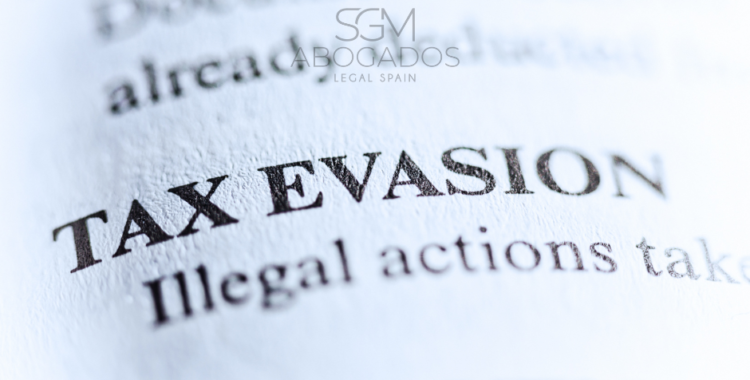Are You Paying Your Taxes?
Tax evasion in Spain: What are the penalties and prison sentences?
Spain takes tax fraud very seriously and there can be severe consequences if you're found out. Read on to find out what the fines and possible jail sentences are for tax evasion.
You have to be careful in Spain when it comes to declaring your taxes. Whether you knowingly or unwittingly leave out payments or earnings, it may be considered tax fraud and you will be penalised accordingly.
Many people get paid under the table, or ‘work in black’ as it’s called in Spain: business owners do it, self-employed workers as well, and multinationals certainly do.

Tax Evasion is a Crime
According to The State of Tax Justice 2021 international report, Spain loses €6.3 billion a year from tax evasion committed by multinationals and big fortunes.
More than 90 percent of Spaniards believe there is a lot or quite a lot of tax evasion in Spain, the latest data from Spain’s Centre for Sociological Research suggests, with 34 percent of respondents considering it unfair as it results in some people having to pay more to cover for those who don’t.
You may be tempted to do the same, but it’s not worth the risk unless you want to face heavy fines or even jail time. Keep in mind as well that 80 percent of Hacienda’s tax evasion team focuses on catching out ‘small fry’ autónomos whilst 20 percent focus on the ‘big fish’.
So, what are the penalties and possible prison sentences for tax evasion in Spain?
Minor offences
Tax fraud (evasión fiscal) in Spain is considered be minor if you don’t declare up to €3,000. In this case, you could be subject to a fine of €1,500.
There are other types of tax fraud that can land people in trouble too, such as wrongly declaring company or self-employed expenses or claiming tax deductions that don’t apply.
More serious offences
The infraction is considered serious if you defraud the government out of €3,000 or more. In this situation, the fines will be 50 to 100 percent of the amount that you didn’t declare.
Criminal offence

The Spanish Penal Code states that a crime is committed against the Public Treasury if “you defraud the state, regional or local Public Treasury, you avoid the payment of taxes, withhold amounts, retain income, improperly obtain funds or enjoy tax benefits that you shouldn’t be”, if the defrauded amount exceeds €120,000.
This means that if you try to hide €120,000 or more from the Spanish government, you won’t only be punished with fines, but a jail sentence is possible too.
If found guilty, you could be sentenced to between one and five years, as well as a fine of one to six times the amount you defrauded.
In addition to the prison sentence and fines, you will not be able to obtain public aid, benefits or social security incentives during a period of three to six years.
Very serious criminal offences
The penalty may be more serious if the amount defrauded exceeds €600,000 or the fraud has been committed within a criminal organisation. This could land you in prison for between two to six years and a fine of two to six times the fee defrauded.
Fines for submitting mistakes on your tax declarations

There are several fines you must pay if you submit your tax declaration with mistakes, file it when it’s incomplete or add in false information. This ranges from €150 for minor mistakes and incomplete data to €250 for more serious mistakes.
If the incomplete or inaccurate data corresponds to those mentioned in articles 93 and 94 of the Ley General Tributaria, then you will be subject to paying a fine of €200 for each set of data that contains mistakes.
Keep in mind
Regardless of the amount defrauded, if you regularise your tax situation, meaning that you declare the correct amount and you pay back what you owe, it’s most likely you will not have to face any penalties.
However, you must make sure you do this before the tax authorities find out. Once you’re already being investigated for a fiscal crime, you may be fined or convicted, even if you have paid up.
Many Thanks to THE LOCAL es











